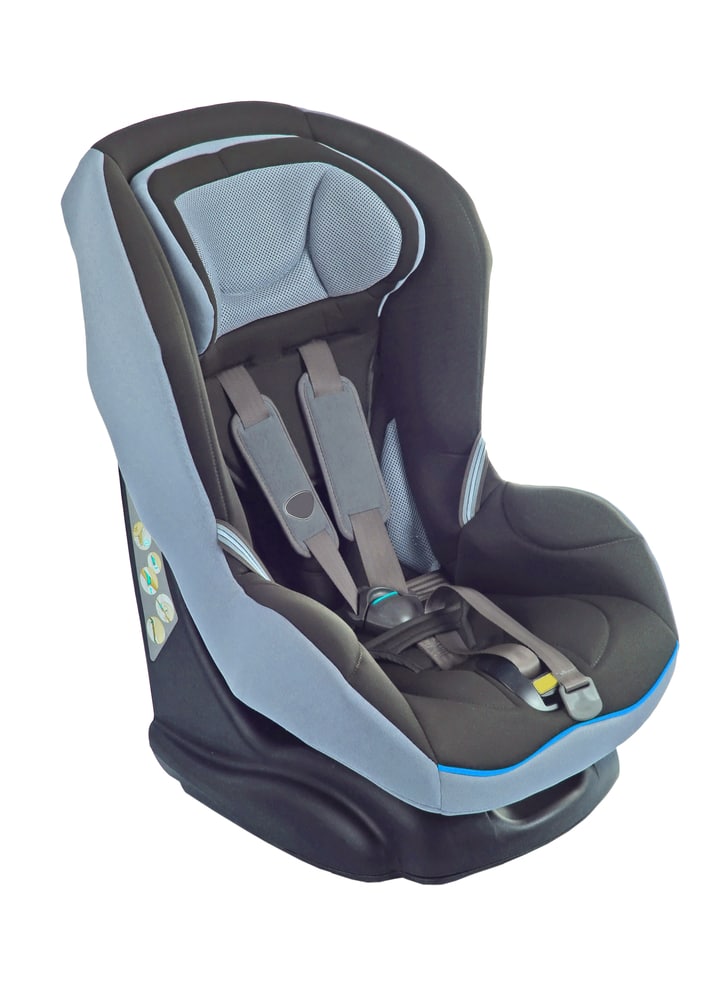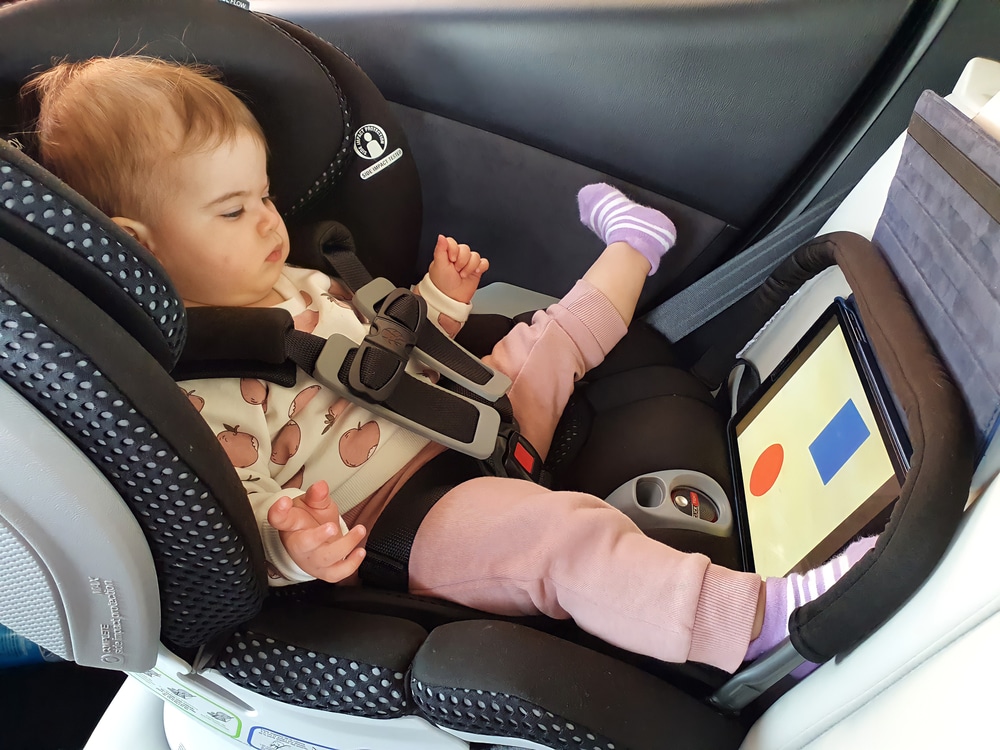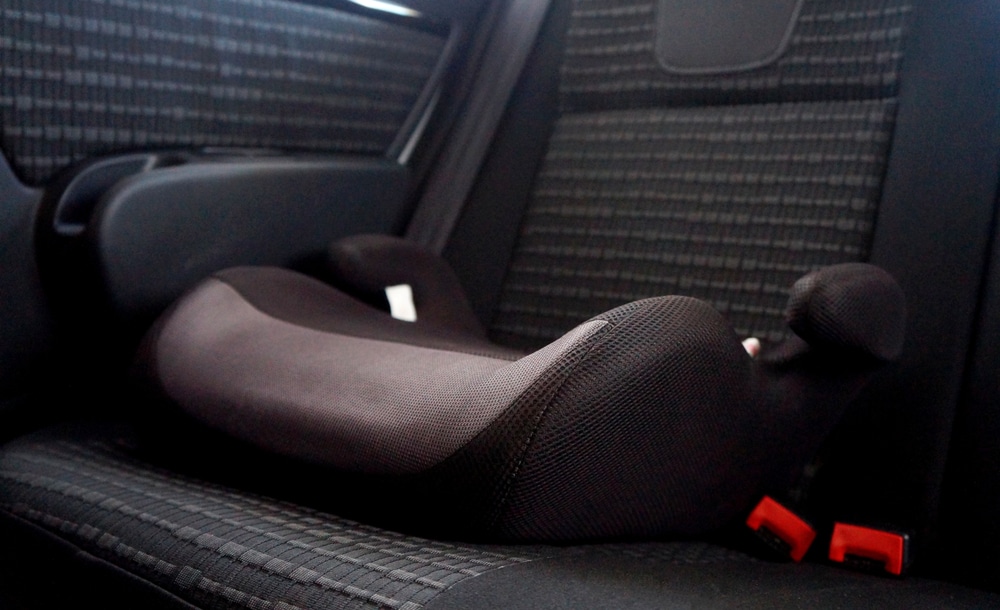In the US, car accidents are the leading cause of death in children and teenagers. Using a car seat can help to protect young children from injury in the event of a collision. In Tennessee, drivers, parents, and legal guardians are required by law to ensure that any child under sixteen is properly restrained while riding in a car.
The History of Car Seat Laws TN
Thanks to car seat laws, TN children were some of the first to see a reduction in fatality rates on the road. Tennessee passed child restraint laws in 1978, becoming the first state to include children in road safety legislation.
It was largely in part due to pediatrician and child safety advocate Dr. Robert Sanders, often more fondly referred to as “Dr. Seat Belt.” He and his wife lobbed tirelessly to encourage the Tennessee General Assembly to pass a law requiring the use of child safety restraints. In large part, it’s thanks to his efforts that all 50 states had passed child restraint laws by 1985.

Tennessee Car Seat Laws
According to booster seat laws, TN children under the age of 16 must be restrained at all times while in a moving vehicle, preferably in the back of the car. Younger children need age-appropriate car seats to help protect them in the event of a collision.
Children under one year old, or older toddlers who weigh less than twenty pounds, should be secured in a rear-facing child restraint system. Those who weigh more than 20 pounds and are under three years of age should be sitting in a forward-facing car seat. However, some rear-facing models with a 30 to 35-pound weight rating are appropriate for older toddlers.
Once children reach around age four, their height becomes more important than their weight when considering a car seat. Children between the ages of four and eight and who are less than 4’9″ tall should use a belt-positioning booster seat system. Older children who are shorter than 4’9″ should also use a similar restraint.
Children who are more than 4’9” tall should be secured using a seat belt system. This generally includes kids between the ages of nine and twelve, though some younger kids may outgrow their old car seat more quickly than others.
Once children reach around age thirteen to fifteen, they’re becoming close to adult size. They can use a passenger restraint system, but they must be secured at all times when sitting in a moving vehicle. Tennessee police officers can and will stop drivers who have unrestrained teens in their car.
Special needs children may require a car seat for longer than others, or they may need a specialized safety belt system when riding in the car. Modified restraints often require a Doctor’s prescription, and they may require adjustments to the vehicle itself to operate.
See Related States: California Laws | Ohio Laws | Connecticut Laws | Kansas Laws
Frequently Asked Questions
Following are some of the most common questions that parents and guardians have regarding Tennessee car seat laws.
Cars such as pickups and sports coupes only have two seats, posing a dilemma for parents with young children. It’s not illegal in Tennessee to fasten safety restraints to the passenger seat. However, drivers should keep in mind that the back seat is the safest for children.
Drivers should place the car seat as far away from the dashboard as possible. If your car has airbags, make sure that you turn off the passenger side. When it deploys, it can force a rear-facing seat forward and smother a child.
In Tennessee, child safety restraint laws only apply to private vehicles. Taxies, tour buses, and other forms of public transportation aren’t required to use specialized restraints for children. If a parent or guardian wants to use their own safety restraint, in most instances, they’ll be allowed to do so without an issue.
No matter what state you might be from, you need to follow the rules of the road in whatever area you might be driving. Both Tennessee natives and those visiting must ensure that children under the age of 16 are properly restrained as per Tennessee car seat laws.
Only public transportation vehicles are exempt from Tennessee’s child safety restraint laws. RVs that are not used in a public capacity are subject to the same rules as any car, meaning that all children onboard must be appropriately restrained.
As many parents are aware, it’s not always a good idea to buy a used car seat. They are often missing a manufacturer’s guide, and they may also have a history that’s compromised their structure. Parents and guardians should only buy a car seat if they have access to the manufacturer’s guide and can confirm that the seat’s never suffered any damage.
The Different Types of Car Seats
There are a variety of different car seats available to suit children of all ages. Parents should know which type of car seat is appropriate for their child and when it’s time to scale up the restraint system according to Tennessee car seat laws.
Infant Car Seat

As the name suggests, infant car seats are designed for very young children. They’re usually snug enough to fit babies from birth until around two years old. Many also double as a carrier that parents can use to take their baby with them on foot.
Infant car seats are always designed in the rear-facing position, which has proven safer for babies and young toddlers than front-facing models. Tennessee parents are required to use this style of a car seat with infants and toddlers weighing less than 20 pounds.
Convertible Car Seat

A convertible car seat is designed to scale up as a child grows. Children can use it from birth until they hit the manufacturer’s weight capacity. Convertible car seats work in both the front- and rear-facing positions, allowing Tennessee parents to comply with the law without replacing their child’s car seat every few years. .
Booster Seat

Booster seats are designed for older, larger children than car seats and generally have a minimum weight requirement of between 30 and 40 pounds. Many designs don’t have a back. Instead, they function to lift children to where the safety restraint system is more effective. In Tennessee, parents must use a booster seat until their child is at least 4’9″ tall, usually between four and eight years of age.
In Conclusion
Tennessee child restraint laws ensure that kids stay safe while on the road. Parents, guardians, and drivers must make sure that any children in their vehicle are appropriately restrained. It’s important to know which type of car seat to use for which aged children.
Make sure that you’re familiar with child safety restraint laws before traveling through Tennessee. Be sure to buy the appropriate car seat, and always check the manufacturer’s details to make sure you’re using it properly. By being proactive, parents can help protect their children and prevent injuries or worse in the event of an accident.






